The movie Mississippi Burning (1988) originates its sense of setting with the 1964 murders of James Chaney, Andrew Goodman and Michael ‘Mickey’ Schwerner. For a historical account of their disappearance and murders near the town of Philadelphia, Mississippi, you may review this description. Mississippi Burning was woven into a crime thriller with two Federal Bureau of Investigation (FBI) agents investigating the disappearance of three civil rights workers in fictional Jessup County. The hostility encountered from the town’s residents, local police, and the Ku Klux Klan launches a police procedural that becomes the story.

The movie begins with an introduction to one black and two Jewish civil rights workers tasked with helping African Americans register for voting. The three disappear, which sufficiently alarms the national organizations supporting the workers to contact the FBI. Agents Alan Ward and Rupert Anderson, as portrayed by Willem Dafoe and Gene Hackman, respectively, are dispatched to work in a reluctant local community to get to the truth and bring a sense of justice to a situation bent in a decidedly different direction. The FBI agents have a decidedly different approach for engaging the people in the local community.
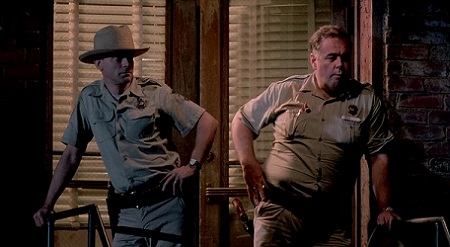
The difficulty engaging the community begins with the fanatical presence of the Ku Klux Klan, which has penetrated the police where the disappearances occurred. The black community is afraid lives in legitimate fear while the white community sees and / or administers the hate and abuse rampant in the town. Jessup County Sheriff Ray Stuckey and Deputy Sheriff Clinton Pell, as portrayed Gailard Sartain and Brad Dourif, respectively, are prominent leaders in this underlying truth.

A fair portion of the investigative portion of the movie offers insight into the differing approaches for learning the fate of the civil rights workers. The older FBI agent Rupert Anderson and the more senior FBI agent Alan Ward have distinctly different styles, wherein the more by-the-book approach reigns supreme from the start of the movie. This really ruffles the elder field agent, and the exposition for how this works out really offers credit to the storytelling, if not the historical accuracy, of the movie. While the absence of significant focus on the black population in the storytelling is a problem for some, the incorporation of Mrs. Pell and Connie, as portrayed by Frances McDormand and Park Overall, has it merits.
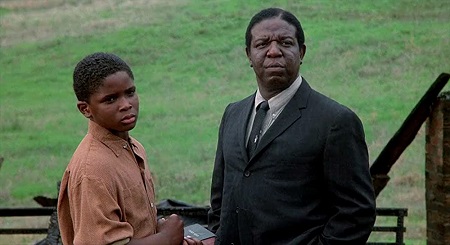
The break that ends the law enforcement tension above happens with a cost. Aaron and Vertis Williams, as portrayed by Darius McCrary and Lou Walker, respectively, suffer at a key point that brings about a swift transition in approach that may or may not be decisive. That this shift occurs is emotionally satisfying, whether Ward and Anderson actually come to appreciate each other afterward or not.

Zeroing in on the community dedication to participating in or tacitly approving of it, outside the local police, included businessman Clayton Townley, Mayor Tilman and believer Frank Bailey. Stephen Tobolowsky, R. Lee Ermey and Michael Rooker portrayed Townley, Tilman and Bailey, respectively. That an attempt to connect the dots with these three, plus Lester Cowens (based on Jimmy Snowden), was an appreciated touch in the portrayed story. Pruitt Taylor Vince portrayed Lester Cowens.

There is so many interesting choices made in the movie that we receive with Mississippi Burning. The choices in what to include and exclude thematically, both from the historical sense and then from the emotional sense of helping folks feel the importance of the story were solid. The decision not to take the perspective of the aggrieved parties themselves further, or the aggrieved class of people further, is interesting as a limitation; my sense is that the movie still works despite not going further. Additionally, the depth of the cast that told the story included additionally needs to be called out as a recommendation for this movie. I grant Mississippi as directed by Alan Parker 3.75-stars on a scale of 1-to-5.
Matt – Saturday, February 26, 2022
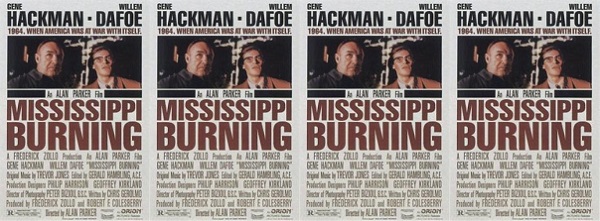

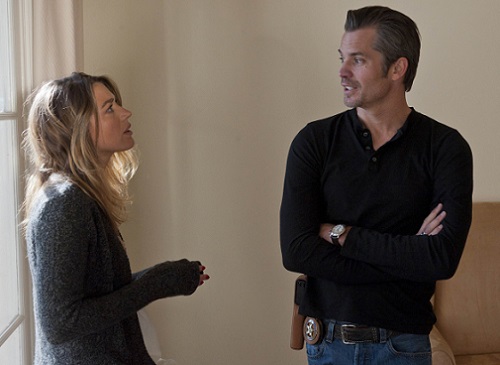 (Natalie Zea as Winona Hawkins, left, and Timothy Olyphant as Raylan Givens in the television series Justified).
(Natalie Zea as Winona Hawkins, left, and Timothy Olyphant as Raylan Givens in the television series Justified).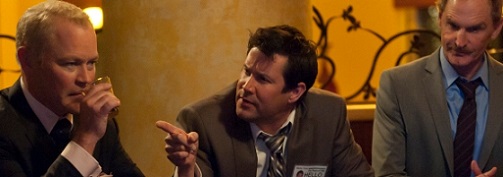 (Left to right, Neal McDonough as Robert Quarles, William Ragsdale as Gary Hawkins and Jere Burns as Wynn Duffy in the television series Justified).
(Left to right, Neal McDonough as Robert Quarles, William Ragsdale as Gary Hawkins and Jere Burns as Wynn Duffy in the television series Justified). (Left to right, Joelle Carter as Ava Crowder, Raymond J. Barry as Arlo Givens and Walton Goggins as Boyd Crowder in the television series Justified).
(Left to right, Joelle Carter as Ava Crowder, Raymond J. Barry as Arlo Givens and Walton Goggins as Boyd Crowder in the television series Justified).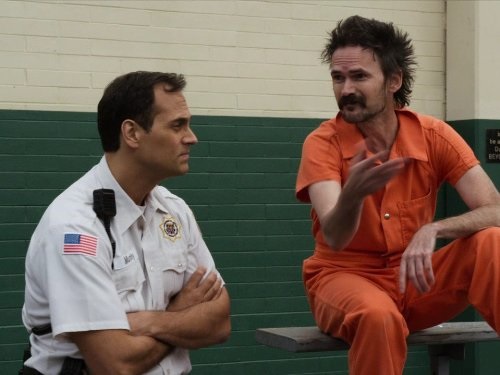 (Todd Stashwick as Ash Murphy, left, and Jeremy Davies as Dickie Bennett in the television series Justified).
(Todd Stashwick as Ash Murphy, left, and Jeremy Davies as Dickie Bennett in the television series Justified).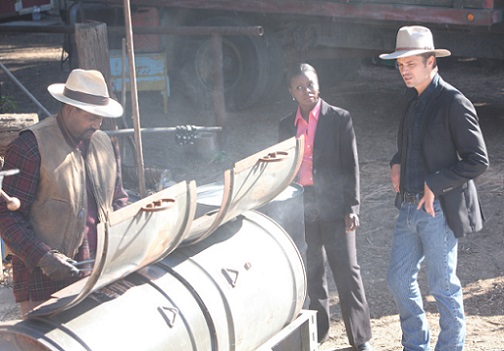 (Left to right, Mykelti Williamson as Ellstin Limehouse, Erica Tazel as Rachel Brooks and Timothy Olyphant as Raylan Givens in the television series Justified).
(Left to right, Mykelti Williamson as Ellstin Limehouse, Erica Tazel as Rachel Brooks and Timothy Olyphant as Raylan Givens in the television series Justified).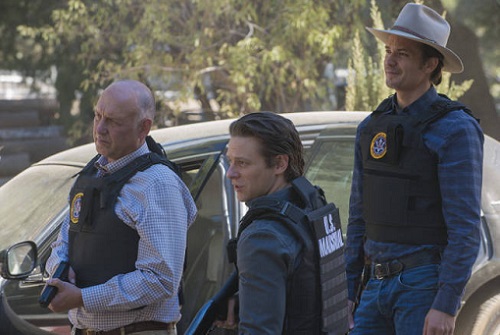 (Left to right, Nick Searcy as Art Mullen, Jacob Pitts as Tim Gutterson and Timothy Olyphant as Raylan Givens in the television series Justified).
(Left to right, Nick Searcy as Art Mullen, Jacob Pitts as Tim Gutterson and Timothy Olyphant as Raylan Givens in the television series Justified).